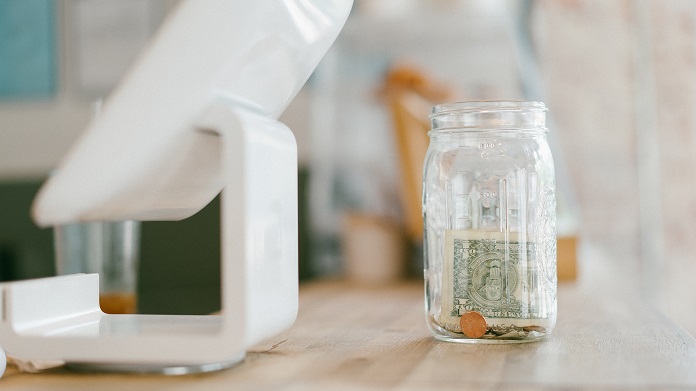10 Money Habits That Keep You Broke
If your finances are controlling you rather than the other way around, you are not alone. More than half of young Americans consider themselves to be living paycheck to paycheck. In one survey, 47 percent of young Americans reported that they are using more than half of their paychecks to pay down debt.
That can get overwhelming quickly. You may not be able to do anything about your student loans, but there are a few small changes that can have a big impact. Here are 10 of the biggest money wasters and money habits that are actually within your control.
1 Lunch and coffee
That latte you grab every morning probably costs at least $3. That is $60 a month on coffee only. If you eat lunch out every day, that probably adds up to about $200 each month. Add in a few after-work drinks or dinners, and you could be spending several hundred dollars a month on food and drinks. It is fine to treat yourself to little luxuries now and then. The problem is when you forget they are luxuries.
2 Wasting food
If you buy food and do not eat it before it goes bad, you might as well be throwing cash away. If you do not like leftovers, or if you see that you are not going to eat the food within a safe date range, put it in the freezer.
3 Digital entertainment
It is way too easy to spend money on your phone. Reading is great, but if you are downloading a $10 book every few days, that adds up fast. The same is true for music, videos, games, etc. One way to slow down this “hidden” spending is to turn off in-app purchases. That adds a speed bump and reminds you to think about whether you really need extra lives or ranks.
4 Not paying off high-interest loans first
It is simple math: A high-interest loan costs more than a low-interest loan. And yet many people pay off things like car loans first, just because they do not like having that kind of debt. But with the average credit card rate being around 14 percent – compared to around three percent for cars – it makes much more sense to pay off your more expensive loans first.
5 Not taking advantage of a 401(k) match
It can be hard to save for retirement when the bills keep piling up. But if your employer matches contributions to your 401(k), you are passing up free money if you do not contribute. You do not have to max out your contributions, but try contributing up to the point where your employer stops matching.
6 Forgetting to use gift cards
If somebody gave you $20, it is unlikely that you would forget to use it. Gift cards, however, often wind up being thrown in a drawer and forgotten. That is like keeping cash under your mattress and forgetting it is there. If you do not shop at the store, either buy a gift or re-gift the card itself.
7 Late charges and bank fees
Almost every company that offers credit charges a late fee. And your bank charges you for every bounced check. That can quickly add up to hundreds of dollars each month, which just adds to the mounting debt. Try to pay at least the minimum, and watch your checking account to make sure you do not get overdrawn. Many banks also offer overdraft protection.
8 Forgotten subscriptions
Companies that sell online subscriptions have found a gold mine in automatic renewals. There is no point in continuing to pay for subscriptions you are not using, but those are the ones that are easiest to forget about. Watch your credit card statement, and cancel any subscriptions that you do not use.
9 Impulse buys
There is a reason people make jokes about “retail therapy.” Purchasing something new feels good until the bill comes in. Try waiting a day or two. If you forget about the purchase, that is a good sign you did not really need it.
10 Ignorance is bliss
One of the main ways people get into financial trouble is by sticking their heads in the sand. If you have no idea what you earn and spend each month, you can’t make informed decisions. Track your purchases for a month and you might be shocked at how much you are spending on certain categories.
Bad habits do not form overnight, and neither do good habits. It takes a sustained effort, especially when it includes giving up something. Do not try to do all of these things at once. Instead, pick the ones that will have the biggest impact, and tackle those first. When you have mastered them, you can move on to the rests of the list.
